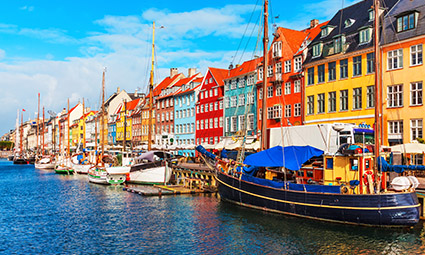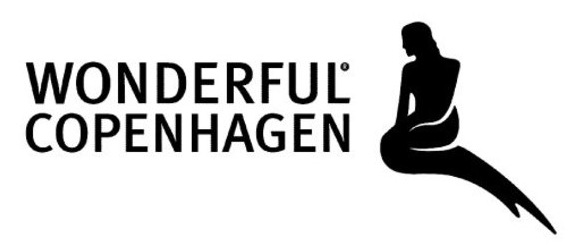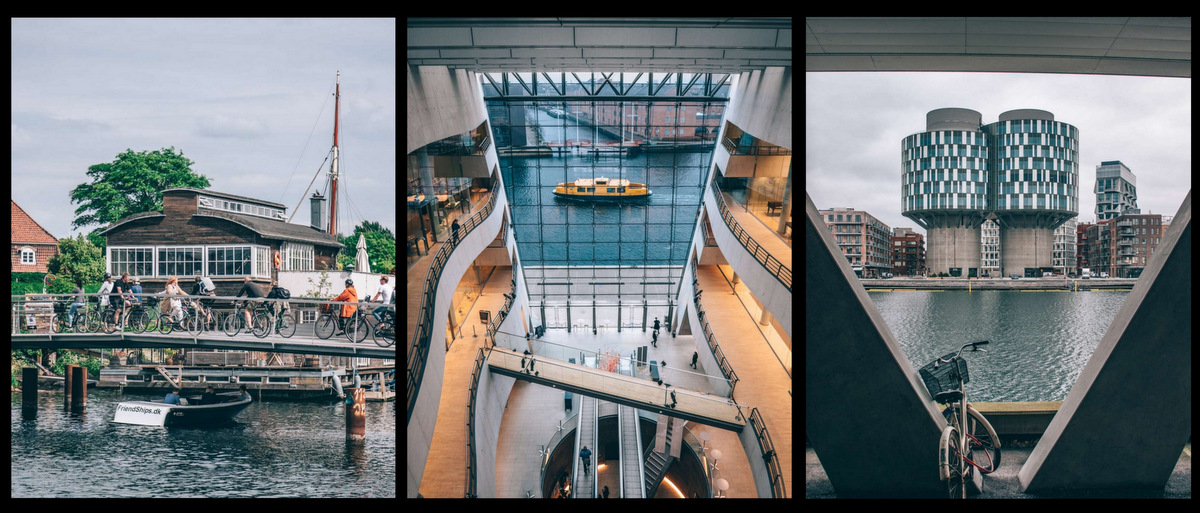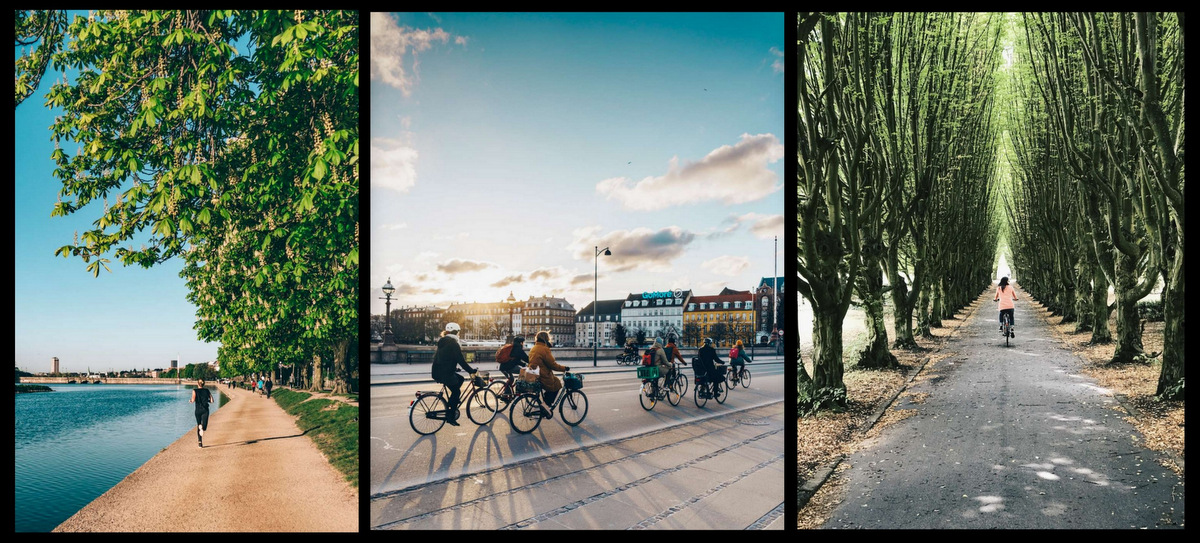The hidden costs of poor venue selection and how to avoid them
On paper, venue selection can look straightforward. Capacity, location, availability, budget. Tick the boxes and move on. In reality, most experienced bookers know that a...


Home to multiple green oases, some of the cleanest water in the world and a unique bike culture, Copenhagen is well known for being one of the world’s most sustainable and liveable cities and is routinely place at or near the top of livability, sustainability and related global rankings.
Every morning the cycle paths fill up with commuters as an impressive 63% go by bike to work in Copenhagen. Sustainability and being green is part of the Danish DNA and just as sorting the rubbish is a natural part of the day, recycling and green energy is a key focus.
It therefore comes as no surprise that Copenhagen is also a front runner when it comes to hosting green meetings, conferences and events. The fact is that sustainability has been thought into most hotels, venues and the city itself, so you will get a green solution whether you want it or not.
In 2009, Copenhagen hosted the first-ever eco-certified political summit, the United Nation’s Climate Change Conference COP15, and in 2012, Denmark played host to the most sustainable Presidency of the European Union, certified to ISO-20121 sustainable event management standards.
The Copenhagen City Council is working targeted towards becoming the world’s first CO2-neutral capital by 2025, and Denmark has ranked number one on the Climate Change Performance Index for three consecutive years, a success based on positive development in recent emissions and good policy execution.
The sustainable focus has even spread to the city’s restaurant scene, presenting numerous restaurants serving locally sourced, organic and climate friendly dishes, ranging from high end options such as ***Michelin-starred restaurant, Geranium and *Michelin-starred restaurant, Relæ, to easy going and diverse Copenhagen Street Food and, Gro, situated in an urban rooftop farm, just to mention a few. But let’s start from the beginning:
Flying will never be the most environmentally-friendly way of transporting yourself but is nevertheless a convenient one. We recommend that you fly directly to leave the smallest possible carbon footprint. Even better, take the train directly from city centre to city centre and save time and expenses from going to and from airports.
Copenhagen offers highly advanced and developed public transport infrastructure. The Metro – presently under expansion – connects the city center to the airport in just 13 minutes, where the efficient airport train takes you to Copenhagen’s Central Train Station in only 12 minutes. Either solution costs less than €5.
Also, worth considering is that Copenhagen is one of the most walkable cities in the world, ranked World’s most walkable city by Walk 21 in 2013. Its compact city centre makes walking between meeting venues, hotels, sights, restaurants and shopping areas a matter of minutes. Or join the locals and travel by bike. There are public bikes available for hire all over the city.

More than 70% of the hotel rooms in Copenhagen are eco-certified, so sleeping with a green conscience is no challenge. The Nordic hotel chain Scandic is one of the suppliers that has taken social responsibility a step further. Scandic not only has effective energy usage and serves selections of organic foods. When sheets, towels and furniture are replaced, they are donated to local shelters for the homeless. Since 1996, the hotel chain has worked hard to make its resource usage more efficient.
Crowne Plaza Copenhagen Towers opened in 2009 with an ambition to be leading in eco-friendly hotel management and was named World’s Greenest Hotel in 2010 by SKÅL. In 2013, after 14 months of focused efforts, Crowne Plaza Copenhagen Towers became the first hotel in Denmark to be certified with the international environmental management standard ISO 14001.
The city’s largest hotel chain, Danish family owned Arp-Hansen Hotel Group, offers 12 hotels, all qualified for The Green Key in recognition of their effectiveness by reducing energy and water consumption, minimising waste, introducing organic produce and creating a healthy environment in which to work and stay.
International hotel chains such as Radisson have their own environmental programs. For instance, starting in 2012, Radisson Blu Hotels & Resorts chose an ambitious commitment with the Think Planet strategy and a plan to reduce energy consumption by 25% within five years.
The above-mentioned hotels all offer meeting facilities with a green profile. However, if you need more space, Scandinavia’s largest convention centre, the Bella Centre, also upholds a thorough environmental policy and its own windmill and holds a Green Key certification.
In recent years, the restaurants in Copenhagen have developed the New Nordic Cuisine, focusing on seasonal, local produce. It’s still possible to get a good steak in Copenhagen, but many restaurants have turned their focus to vegetarian and vegan dishes. This approach is also climate-friendly and adds to the fact that Denmark, and the Copenhageners in particular, are leading within organic food consumption.
Copenhagen’s ‘Michelin-starred restaurant, Geranium, mainly serves organic and biodynamic food, but you can find organic food in numerous restaurants around the city. BOB Biomio Organic Bistro, Denmark’s largest organic eatery in the trendy Vesterbro part of town is a good example. Restaurant Cap Horn, by the picturesque canal Nyhavn, was one of the first restaurants in the city to implement organic produce and, as a minimum requirement, all basic ingredients such as eggs, milk and butter are organic, as are the coffee and tea and the majority of the other beverages.
If you want to cater organic food for meetings or even mega-events, Danes know how to do that as well. During the UN Climate Change Conference COP15 held in Copenhagen in 2009, 75% of the food for the 30.000+ participants was organic and could be purchased at a reasonable price.

There are several ways to engage your participants in environmentally-friendly activities. Why not enjoy the sights of Copenhagen from the back of a bike or tie your shoelaces and run around the sights, maybe finish off with a refreshing and cooling swim in the clean harbour.
Another possibility is to visit some of the organic farms e.g. Krogerup Avlsgaard or Fuglebjerggard outside the city, offering teambuilding activities and culinary sessions with food and micro-brewed beer in organic settings.
Copenhagen works to continuously push for a more sustainable future and aim to inspire other destinations to embrace green solutions as a natural part of hospitality. And to do so the congress and meetings industry plays an instrumental role creating a sustainable city that works towards realising the UN’s 17 sustainable development goals.
The City of Copenhagen’s existing policies and strategies all contain ambitious goals in relation to the SDGs, addressing all three dimensions of sustainable development: social, economic and environmental including, as mentioned, becoming the world’s first carbon neutral capital by 2025, an ambitious goal, which is tracking on target.
Acknowledging the need for Destination Marketing Organisations (DMOs) to contribute to the realisation of the SDGs, Copenhagen’s official DMO, Wonderful Copenhagen is working closely together with a range of stakeholders to ensure a sustainable destination that is as much for locals as it is for tourists.
Wonderful Copenhagen has recently been certified as a Green Tourism Organisation and has vowed to make tourism a force for good. From hotels combatting food waste to venues running job school programmes for refugees, Copenhagen’s meetings industry is behind many different sustainable initiatives that all contribute to making Copenhagen a more sustainable destination. Wonderful Copenhagen is set to launch its new sustainability strategy for 2018-2021, which will outline the path going forward for both the destination and its many players as well as Wonderful Copenhagen itself.